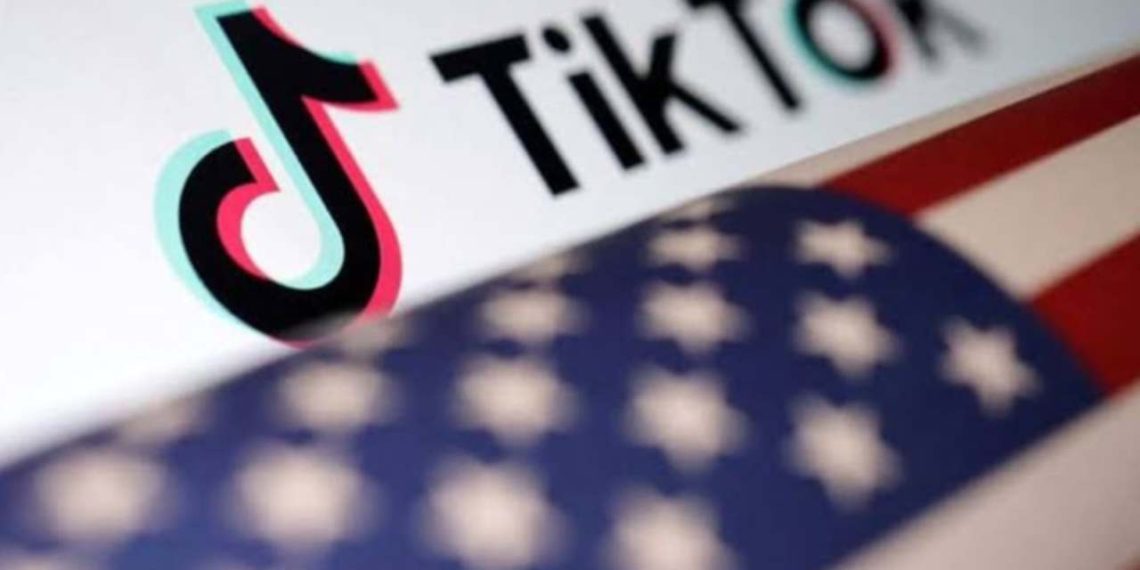The House approved legislation on Saturday targeting TikTok, aiming to ban the app in the U.S. unless its Chinese owner divests within a year. However, TikTok’s fate remains uncertain.
House Republicans linked the TikTok ban to a broader foreign aid package, aligning with President Biden’s priorities and bipartisan support for Ukraine and Israel.
This move expedited the ban’s progress after a previous version stalled in the Senate.
In March, a standalone bill proposing a six-month divestment deadline passed the House with overwhelming bipartisan support.
Concerns over national security drove both Democrats and Republicans to push for action against ByteDance Ltd., TikTok’s Chinese parent company.
The adjusted measure, endorsed by a vote of 360-58, advances to the Senate following negotiations leading to a compromise.
Even with potential enactment, the company would have a year to seek a buyer and may contest the law in court, citing violations of First Amendment rights for its millions of users.
Legal challenges could significantly prolong Congress’s outlined timeline or prevent the law from taking effect.
The company vigorously opposed the legislation, mobilizing its 170 million U.S. users—many of whom are youth—to lobby Congress against it.
However, the intensity of the backlash irked lawmakers on Capitol Hill, where concerns over Chinese threats to the U.S. are widespread, and where few members personally engage with the platform.
“We will not stop fighting and advocating for you,” TikTok CEO Shou Zi Chew said in a video that was posted on the platform last month and directed toward the app’s users.
“We will continue to do all we can, including exercising our legal rights, to protect this amazing platform that we have built with you.”
The bill’s swift progress through Congress is notable for its singular focus on a specific company and marks a departure from the longstanding hands-off approach to tech regulation.
Despite various efforts to address online child protection, user privacy, and platform content liability, lawmakers have historically refrained from significant intervention in the tech industry.
The TikTok ban underscores bipartisan apprehensions regarding China. Lawmakers, along with intelligence agencies, have expressed concerns about potential Chinese coercion of ByteDance to access American user data or manipulate TikTok content to suit Chinese interests.
TikTok has refuted allegations of being a tool for the Chinese government and asserts that it hasn’t shared U.S. user data with Chinese authorities.
The U.S. government hasn’t publicly presented evidence implicating TikTok in sharing American user data with China or tampering with its algorithm, which shapes content visibility for American users.
Given past legal victories in the U.S., the company has grounds to believe in the viability of a legal challenge.
In a previous case, a federal judge blocked a Montana law aiming to ban TikTok statewide following a lawsuit filed by the company and five content creators.
In 2020, federal courts blocked then-President Donald Trump’s executive order to ban TikTok, following a lawsuit by the company citing violations of free speech and due process rights.
Trump’s administration brokered a deal involving U.S. corporations Oracle and Walmart acquiring a substantial stake in TikTok, but the sale faltered, partly due to stricter export controls imposed by China on its technology providers.
Several states and the federal government have implemented bans on TikTok for government devices.
Last year, Texas faced a legal challenge by The Knight First Amendment Institute at Columbia University, which argued that the ban restricted academic freedom, especially in public universities.
In December, a federal judge ruled in favor of the state.Organizations like the American Civil Liberties Union (ACLU) have supported TikTok, asserting that Congress shouldn’t infringe upon the rights of its 170 million American users to express themselves and access information. Jenna Leventoff, a lawyer for the ACLU, emphasized this stance.
Since mid-March, TikTok has allocated $5 million for TV ads opposing the legislation, according to AdImpact, an advertising tracking firm.
These ads feature various content creators, including a nun, highlighting the platform’s positive impact on their lives and arguing against a ban as a violation of the First Amendment.
Additionally, the company has urged its users to contact Congress, leading to some lawmakers receiving calls laced with profanity.
“It is unfortunate that the House of Representatives is using the cover of important foreign and humanitarian assistance to once again jam through a ban bill that would trample the free speech rights of 170 million Americans, devastate 7 million businesses, and shutter a platform that contributes $24 billion to the U.S. economy, annually,” said Alex Haurek, a spokesman for the company.













